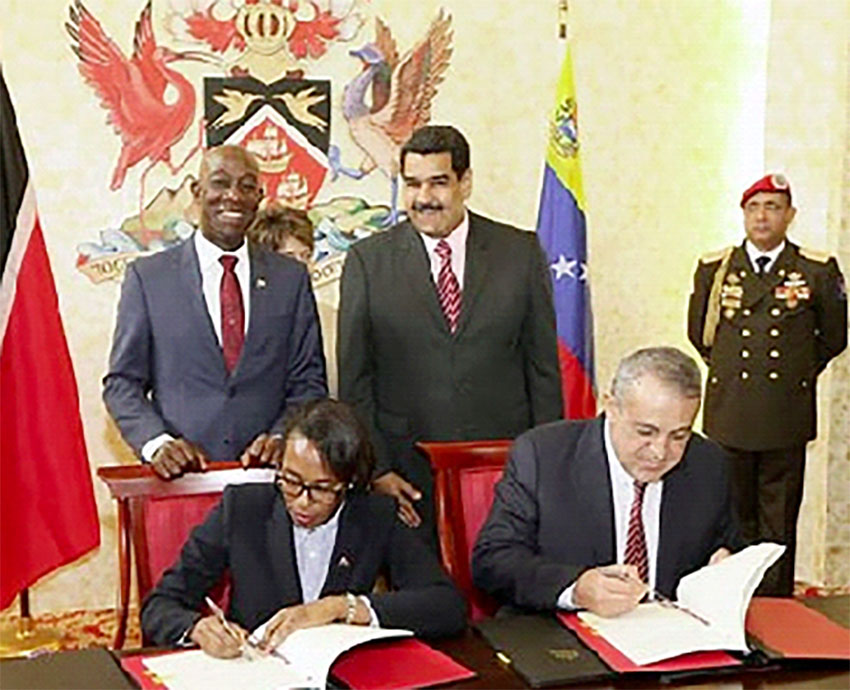Trinidad and Tobago’s recent prominent participation in events in Caracas staged to mark the occasion of the 213th Anniversary of the Independence of Venezuela and the Day of the Bolivarian National Armed Forces of Venezuela, is probably unlikely to pass without attracting the attention of the rest of the Caribbean, particularly, given what has been the recent surge of rockiness in relations between Guyana and Venezuela over the latter’s recent significantly hyped up claim to the Essequibo County.
If there can be no question than that the prevailing warmth in relations between the two countries (Trinidad and Tobago and Venezuela) is driven by the significant economic gain that they both will derive from the successful execution of the Dragon Gas Field project, the question may well eventually arise as to whether an arrangement that is likely to realize considerable economic gain for both countries may not cause Trinidad and Tobago take back the ultra-assertive pro Guyana pronouncements that have historically underlined CARICOM’s position on Venezuela’s territorial claim.
Up to this time Port of Spain has done nothing to send signals that the potential returns from the Dragon Field could threaten what, up to this time, has appeared to be an iron-clad CARICOM commitment to support the inviolability of Guyana’s territorial integrity. That said, the successful execution of the project promises to provide significant boosts to the economies of both countries, both having experienced significant slippage from the halcyon days of their own oil resources.
Recent media reportage has paid attention to the high-profile participation by Trinidad and Tobago in Venezuela’s 213th Independence Day celebrations held on July 5 during which Venezuela’s Ambassador to Trinidad and Tobago, Alvaro Sanchez, reportedly spoke at length on business and trade relations between the two countries, including the prospects for significantly enhanced ties that promise to derive from the Dragon Gas Field agreement. The Venezuelan envoy reportedly made particular reference to the “rapidly advancing” negotiations in the matter of the Dragon Gas Field project.
Alvarez also reportedly made reference to a new Venezuelan shipping company, Playa Patanemo, partly owned by the Venezuelan state and partly owned by the private sector, which he said had “commenced travel this year between Güiria and Chaguaramas, bringing both passengers and cargo.”
Up to this time there has been no known official comment from Georgetown on the current status of relations between Port of Spain and Caracas, though both capitals will doubtless be aware that any seeming weakening of the CARICOM bond that places a high premium on the inviolability of Guyana’s territorial integrity will pose a weighty challenge to the historical bonds which, up to this time, has kept the regional movement stable.





